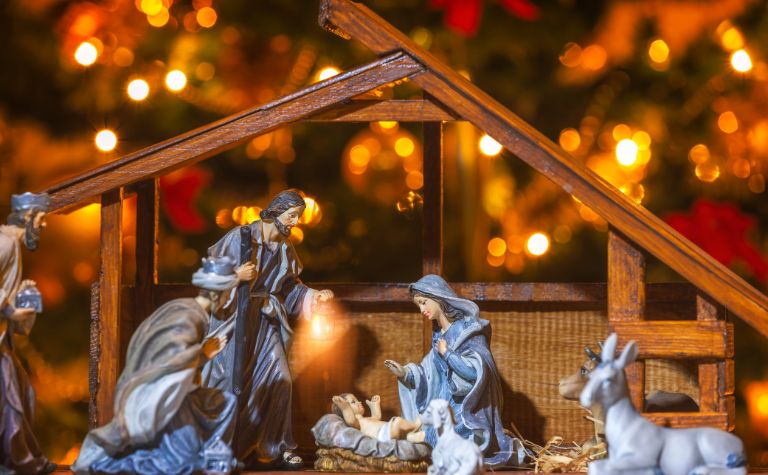Shepherds, often romanticized in literature and art, have been integral to pastoral societies for centuries.
In the biblical era, these individuals played crucial roles in the livelihood and economy of ancient communities.
However, despite their essential contributions, shepherds in some contexts, especially in ancient Israel, were often labeled as “unclean.”
This designation was not merely a comment on their physical cleanliness but carried deeper societal and cultural implications.
By understanding the daily life of shepherds, the prevailing purity laws, and societal perceptions, we can gain clearer insights into why shepherds were viewed in such a light and the broader significance of this label in historical narratives.

The Nature of Shepherd Work
Shepherds in ancient times undertook a role that was as demanding as it was essential.
Tasked with the care and management of flocks, their duties stretched beyond merely watching over sheep or goats.
They were responsible for ensuring the safety of these animals from predators, finding suitable grazing lands, and guiding them to sources of water.
This meant that they often led a nomadic lifestyle, moving from one pasture to another in search of sustenance for their flocks.
Being constantly in the company of animals, shepherds were frequently exposed to the outdoors’s dirt, dust, and physical demands.
Their close proximity to animals also meant that they were often in contact with animal waste, birth fluids, and occasionally, carcasses — all of which had implications in terms of cleanliness standards of the time.
Furthermore, the nature of their work required them to be away from settled areas for extended periods.
This isolation made it challenging for shepherds to participate in communal activities related to cleanliness rituals.
Their prolonged absences from settlements, coupled with the inherent demands of their profession, contributed to certain perceptions and classifications regarding their state of purity.

Religious Rituals and Purity Laws
In ancient Israel, the concept of purity was deeply ingrained in the fabric of society.
It was not merely about physical cleanliness but was rooted in a comprehensive set of regulations and practices that governed various aspects of daily life.
The Levitical laws, detailed primarily in the book of Leviticus, laid out a vast array of stipulations pertaining to what was deemed clean and unclean.
These guidelines ranged from the types of animals deemed fit for consumption, to specific procedures after childbirth, to protocols surrounding skin ailments, among others.
Each regulation had its purpose, often serving as symbolic representations of holiness, order, and the distinction between the sacred and the profane.
Given these stringent guidelines, the nature of shepherd work often led them to situations where maintaining ritual purity was challenging.
For instance, contact with animal carcasses, a possibility when tending to large flocks, would render an individual ritually impure.
Similarly, handling birth fluids during the lambing or kidding season would have the same effect.
While these states of impurity were temporary and could be resolved with specific cleansing rituals, the frequency with which shepherds might encounter such situations made consistent adherence difficult.
Additionally, the physical distance from temple or community centers meant shepherds might not have immediate access to purification rituals or ceremonies.
As a result, even if unintentional, they might remain in a state of impurity longer than others.
Thus, while the purity laws defined and maintained societal boundaries and religious observances, the inherent demands of shepherd work often intersected with these regulations, resulting in the broader categorization of shepherds as “unclean.”

Societal Perceptions and Stereotypes
The role of shepherds in ancient societies, especially in regions like Israel, was multifaceted.
On one hand, they played a crucial role in the economy, supplying wool, milk, and meat.
On the other, the nature of their work and the implications of the purity laws led to certain perceptions that set them apart.
Firstly, the nomadic lifestyle of shepherds, which kept them away from established settlements, created a degree of separation from the larger community.
This physical distance, over time, translated into a social distance.
Since they weren’t regularly part of community events, discussions, or rituals, they might be perceived as outsiders or even as less cultured or informed than their settled counterparts.
Moreover, given their regular encounters with situations that rendered them ritually impure, there might have been a tendency to generalize and see them as perpetually in this state.
This could lead to hesitancy in engaging with them in regular societal or communal interactions.
The labeling of “unclean” had the potential to create a stigma, placing shepherds in a category that was distinct from the rest of the community.
Furthermore, like many professions that require intensive labor and have fewer societal interactions, there were likely stereotypes associated with shepherds.
In many societies, professions that are misunderstood or less visible to the larger public tend to accumulate a mix of myths, misconceptions, and simplified views about them.
The Symbolic Role of Shepherds in Biblical Narratives
While occasionally marginalized due to societal perceptions, shepherds hold a distinguished place in several biblical narratives.
These stories often highlight the contrast between societal views and the value or honor bestowed upon shepherds in pivotal moments.
One of the most recognized instances is the announcement of Jesus’ birth.
In the gospel accounts, shepherds are among the first to receive the news of the birth of the Messiah.
This event is particularly noteworthy because, rather than kings or religious leaders, the humble shepherds were chosen to witness this monumental event.
This selection underscores a recurring theme in biblical teachings: the elevation of the humble and the unexpected choices of the divine.
Further back, many pivotal figures in the Old Testament were shepherds at some points in their lives.
While in exile, Moses tended to the flock of his father-in-law before encountering the burning bush, an event that would lead him to free the Israelites from Egyptian bondage.
King David, celebrated as one of Israel’s greatest monarchs, started his journey as a young shepherd boy. These narratives emphasize that one’s humble beginnings or profession do not limit their potential in the eyes of the divine.
Such stories serve multiple purposes.
They highlight the impartiality of divine choices, suggesting that worthiness isn’t strictly tied to societal status or perceptions.
Additionally, by placing shepherds in roles of importance or honor, the narratives implicitly challenge and overturn societal biases, encouraging readers or listeners to look beyond surface judgments.
While shepherds might have faced certain stereotypes or been viewed as “unclean,” biblical stories often elevate them, presenting a contrasting view and underscoring deeper themes of humility, unexpected divine choices, and the overturning of societal expectations.
Recent Posts
Every year, millions around the globe commemorate the birth of Jesus Christ on December 25th, a date synonymous with Christmas and festive celebrations. However, despite its widespread...
The term "Nativity" is often immediately associated with the birth of Jesus Christ and the stories surrounding this event. Yet, the essence of the word encompasses much more than a single...
